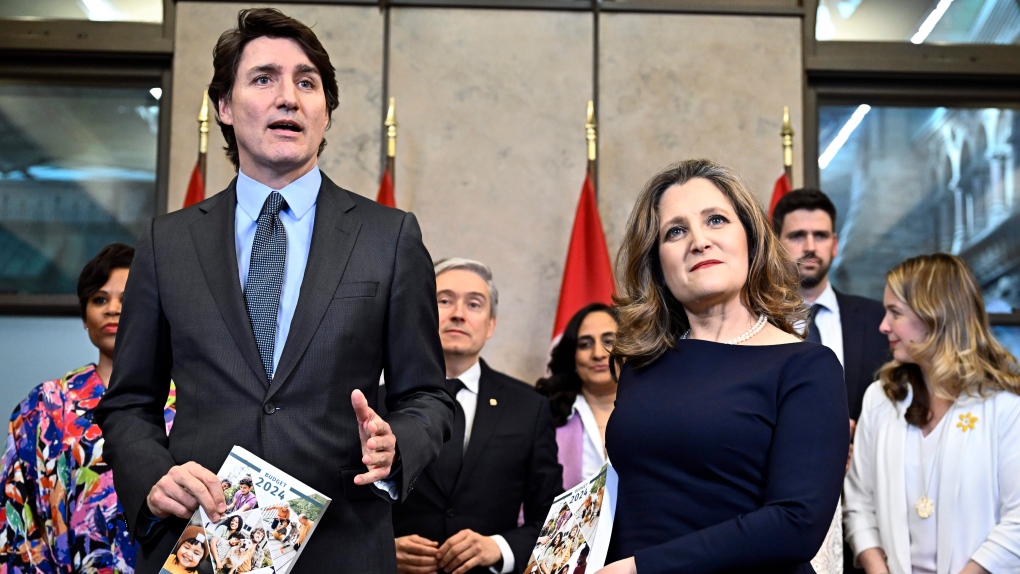
Amid concerns over 'collateral damage' Trudeau, Freeland defend capital gains tax change
CTV
Facing pushback from physicians and businesspeople over the coming increase to the capital gains inclusion rate, Prime Minister Justin Trudeau and his deputy Chrystia Freeland are standing by their plan to target Canada's highest earners.
Facing pushback from physicians and businesspeople over the coming increase to the capital gains inclusion rate, Prime Minister Justin Trudeau and his deputy Chrystia Freeland are standing by their plan to target Canada's highest earners.
In respective press conferences on Tuesday, both Trudeau and his finance minister defended their proposal to rake in $19.3 billion over the next five years by increasing the capital gains inclusion rate — the portion of capital gains on which tax is paid – for individuals with more than $250,000 in capital gains in a year.
This new revenue stream comes as the federal government plans to spend billions of dollars to increase Canada's housing supply and enhance social programs, with the Liberals framing the new revenue as helping to offset those investments in a way that's fair and doesn't offload a larger deficit on younger generations.
"At a time when young people have started to give up on the dream of eventually ever being able to own a home, it was really important to rebalance the situation," Trudeau said, speaking to reporters in Saskatchewan.
"I understand for some people this may cost more if they sell a cottage or a secondary residence. But, young people can't buy their primary residences yet."
As revealed in last week's federal budget, the capital gains inclusion rate will increase from 50 per cent to 67 per cent, and will also apply to all capital gains realized by corporations and trusts.
That means that as of June 25, people with more than $250,000 in profit made on the sale of assets in a year will have to pay taxes on a larger portion of that money.
